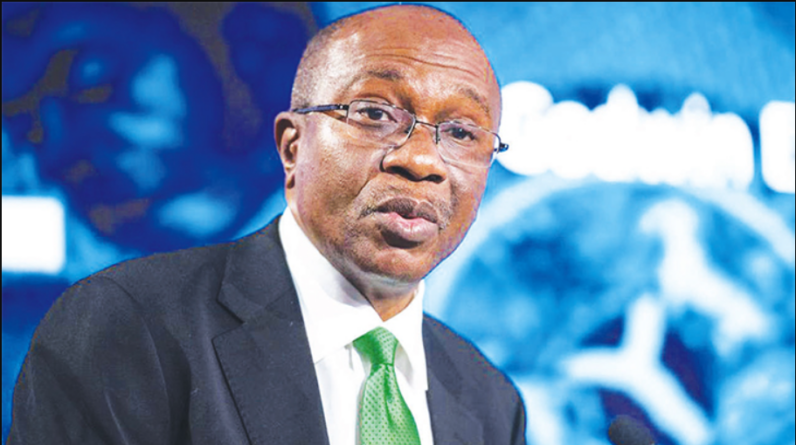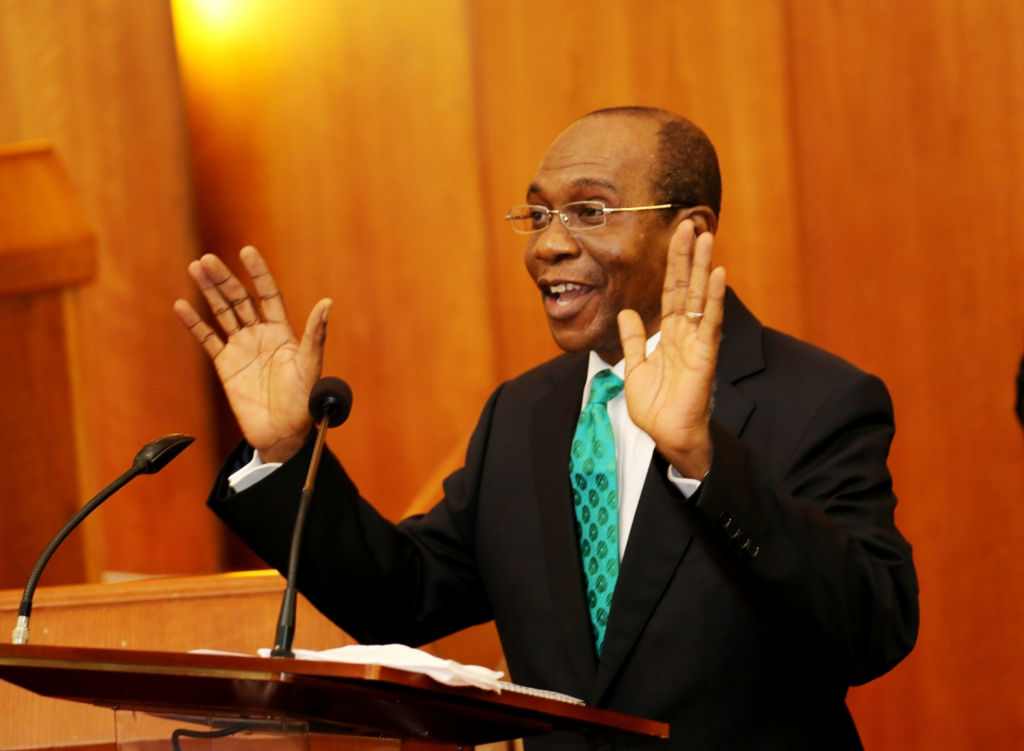
Washington, DC: Nume Ekeghe, Funke Olaode, and Ugo Aliaogo
The Governor of the Central Bank of Nigeria (CBN), Mr. Godwin Emefiele, stated yesterday that regulators in Nigeria will continue to monitor and supervise financial institutions in order to ensure the stability of the banking system. This is in response to the recent collapse of Silicon Valley Bank and Signature Bank in the United States, which heightened fears of a global banking crisis.
During an interview with correspondents on the margins of the ongoing International Monetary Fund/World Bank Spring Meetings in Washington, DC, Emefiele stated the aforementioned.
In addition, he noted that the IMF’s support for the CBN’s restrictive monetary policy was evidence that the central bank was doing the right thing.
CBN governor welcomes IMF backing for restrictive monetary policy.
“Therefore, monetary policy and monetary authorities must continue focusing on inflation in order to continue reducing it. Emefiele stated that while monetary authorities are working to reduce inflation, they must also keep a watch on the stability of banking systems through surveillance, supervision, and regulatory frameworks.

He stated, “It warms our hearts that even in sub-Saharan Africa, the IMF has determined that Nigeria’s growth rate should be maintained at 3.2%, despite our assessment that it is still sub-optimal.It denotes that we are performing correct actions and will continue to do so. “However, this also means that we are not going to take our eyes off monetary policy, which is to concentrate heavily on how to moderate inflation, while at the same time ensuring that banking system stability remains resilient and then strong as it is now.”
Commenting on the general overview of the spring meetings, which concludes today, Emefiele noted that the gathering of policymakers from around the world was intended to propose solutions to food crises, rising poverty, and global inflation, among other pressing issues.
He added, “The meeting’s forecast remains that sure, a great deal of work has been accomplished in 2022, and growth is progressively returning, but it is still below optimal levels. Inflationary pressures continue, and despite the fact that inflation is decreasing as a result of measures taken by monetary authorities to reduce the inflation rate, it still remains at extremely high levels globally, such that even though global inflation is projected to reach seven percent, it remains extremely high.
And the pinnacle of all the consequences of what we’ve witnessed in 2022 is that poverty, which has been extensively discussed here, has skyrocketed globally and now affects over 700 million people.
Food insecurity has also increased dramatically, to the point where over 350 million people worldwide are affected by dire food crises.
In addition, he remarked that the increase in global debt was causing a funding crunch and that multilateral organizations were becoming hesitant to lend to countries in need of loans.
The governor of the CBN continues, “Even the IMF has acknowledged that debt portfolios and lending portfolios have reached all-time highs. This is the highest level of debt portfolio that the IMF has seen in its records over the past two decades, and they are regrettably warning that they may not be able to do much for countries that need more debt to restructure their balance sheets and continue operations.
Due to the limited fiscal space, the IMF insists that countries curtail their expenditure, but in my case, I would argue that if you want to spend, you should raise revenue in order to do so.
“I think it’s important that you raise revenue and don’t become constrained in an environment where there is no debt, where financial market conditions are very tight and very limited, and where interest rates are high and could create a great deal of burden for economies. The only option for fiscal policy in this case is to expand the revenue base in order to be able to spend.”
